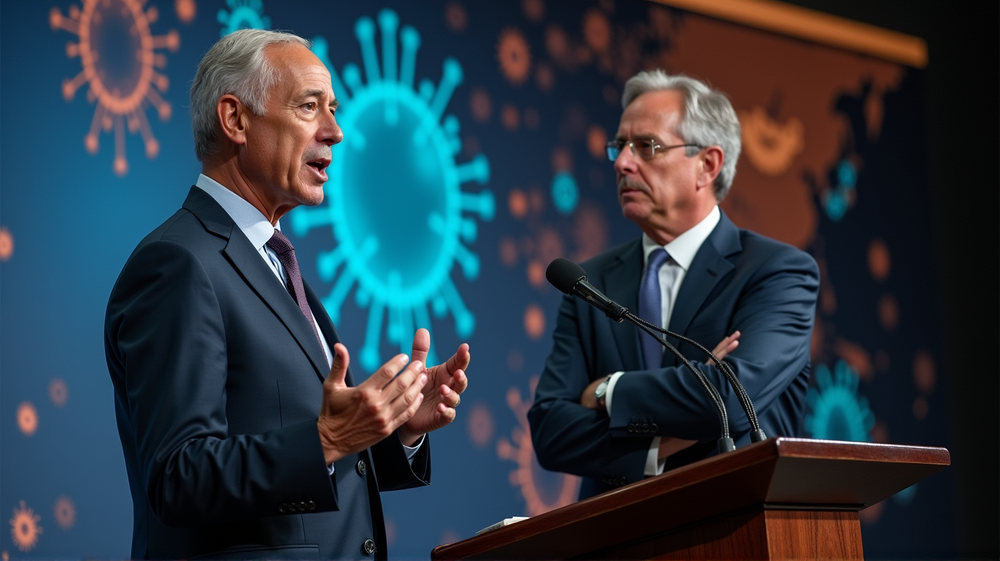In an era defined by uncertainty and fear, clarity became a rare commodity. When the pandemic struck with unmatched ferocity, world leaders grappled not only with the health crisis but also with how best to communicate with their citizens. Among these leaders was President Uhuru Kenyatta, who made a pivotal decision that had far-reaching implications for Kenya.
The Rise of Kagwe as Kenya’s Trusted Voice
When every nation faced the invisible enemy of COVID-19, President Uhuru Kenyatta understood the need for a singular, coherent voice to navigate these turbulent waters. Enter Mutahi Kagwe, the then Cabinet Secretary for Health, who would become the emblem of calm, control, and consistency.
But why Kagwe? According to Uhuru Kenyatta, while leaders worldwide embraced varied approaches, Kenya needed a steady hand—a voice that could distill complex information into digestible messages for the everyday Kenyan. Kagwe’s appointment was strategic; his reputation for precision and unyielding focus on facts made him the perfect candidate.
A Strategic Communication Plan Unveiled
The decision to streamline communication was not taken lightly. It emerged from a broader strategy to combat misinformation, which, at the pandemic’s height, was as rampant and dangerous as the virus itself. As stated in The Star, Uhuru highlighted that misinformation posed a formidable threat to national cohesion and public health efforts. Thus, unifying the source of information was paramount.
Kagwe’s press briefings became a staple in Kenyan households. His calm demeanor and factual delivery resonated across the nation, creating a shared trust that computerized the panic-inducing speculation that often spread through social media and uninformed sources.
A Balanced Approach with Transparency
Interestingly, Uhuru’s decision wasn’t just about managing panic but involved building a relationship of trust with the public. Transparency became the cornerstone of this approach. By having Kagwe as the main voice, the government ensured that every bit of information was vetted, accurate, and timely.
The challenges were many. From managing the expectations of a worried population to ensuring that no voice felt excluded, Kagwe’s role demanded a delicate balance. Yet, his performance not only won praise from within Kenya but also drew attention from global health communication experts.
Moving Forward with Lessons Learned
The pandemic may have reshaped the communication landscape, but the core lessons remain. Kenyatta’s decision serves as an intriguing case study in leadership, illustrating the power of trusted communication during crises. Looking ahead, the effects of having a singular, trustworthy voice continue to influence how Kenya prepares for future challenges.
As we reflect on those trying times, one thing is clear: in an age of noise, the calm voice of reason remains a treasure. Kagwe’s contribution, supported by Uhuru’s insightful leadership, cemented a legacy of trust, which undoubtedly fortified Kenya in its fight against COVID-19.













